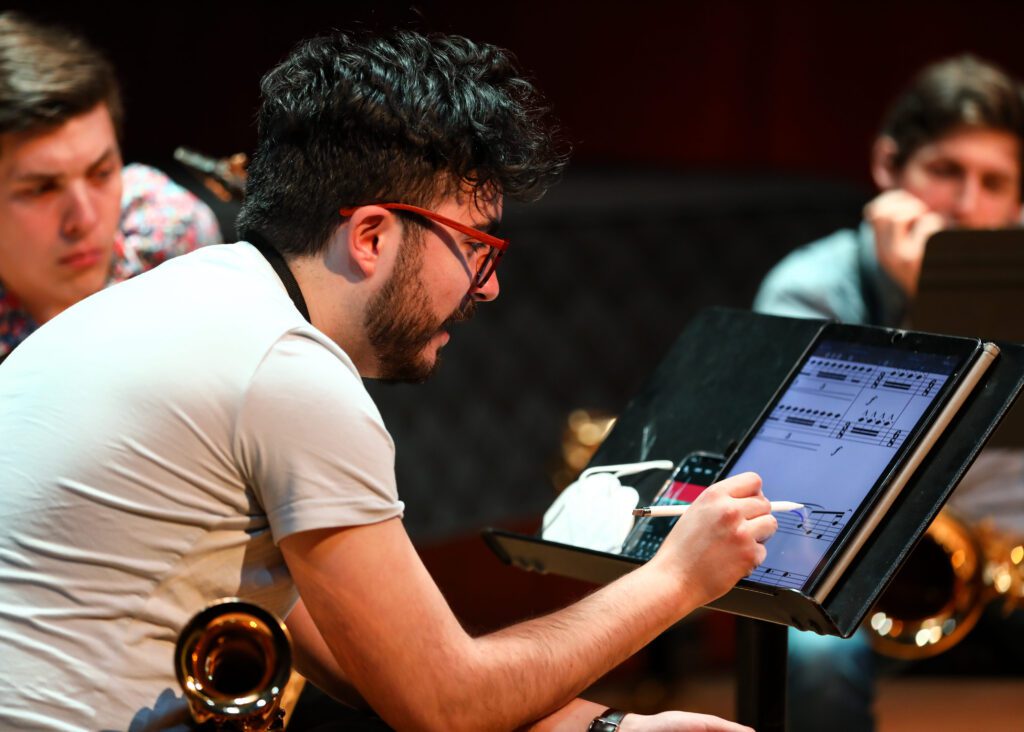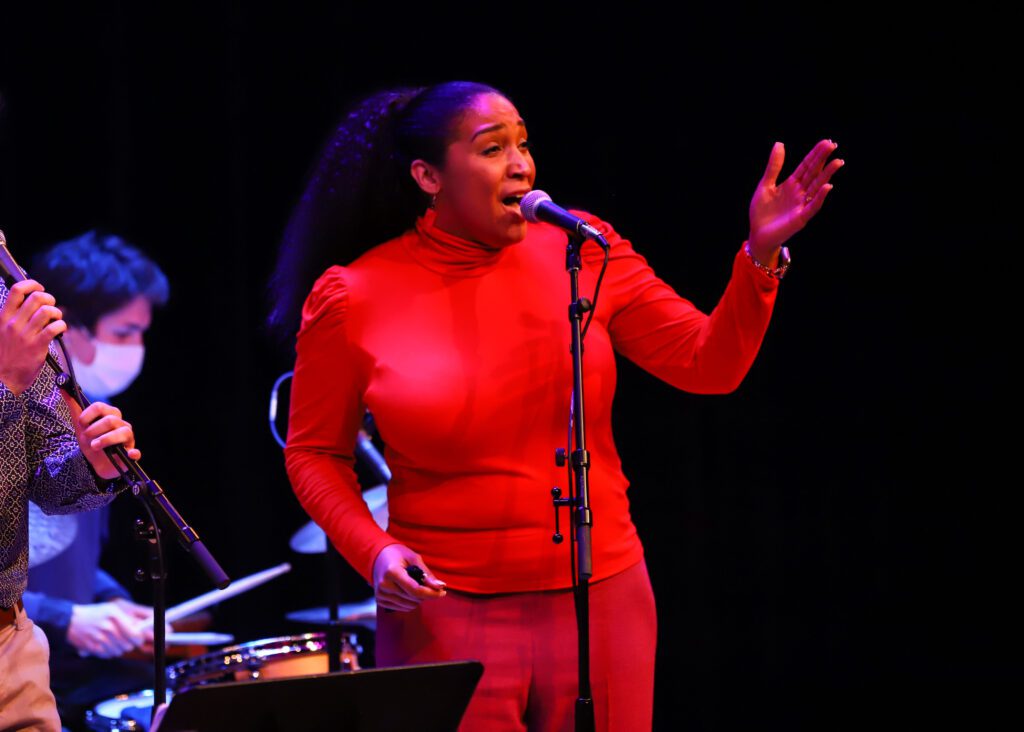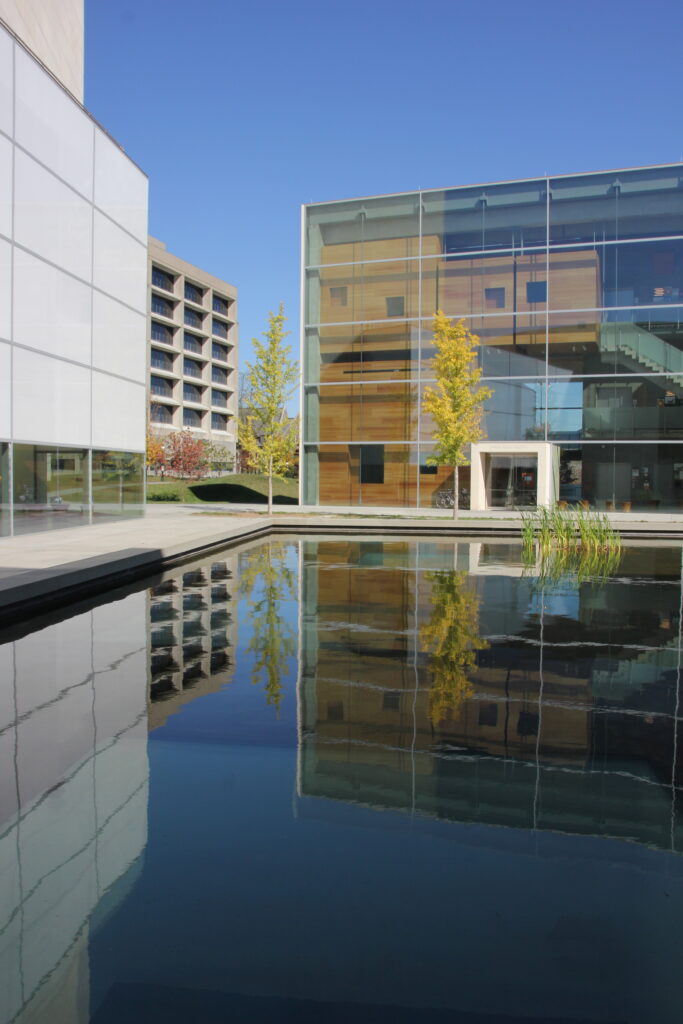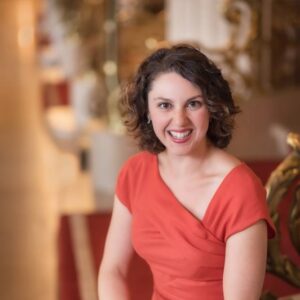The Department of Music is pleased to announce the establishment of two Minor degree programs: a general Minor in Music (MUS) and a Minor in Music Performance (MPP), the latter based on the long-standing Certificate in Music Performance. Together, these new offerings will contribute to the Music Department’s continued mission of providing a comprehensive array of musical study opportunities to students from all departments at Princeton.
Beginning in Fall 2023, students in the Class of 2025 are invited to forge exciting paths inspired by their imaginations, bringing the topics and themes they are studying in their majors to bear on our music practices and, in turn, offering new lenses through which they can metabolize their studies in other areas.

Minor in Music (MUS)
Modeled on the existing major, students pursue work in two loosely defined areas: Culture and Criticism (C&C) and Materials and Making (M&M). M&M encompasses topics usually explored in hands-on ways, such as composition, improvisation, theory, analysis, and electronic music. The C&C area focuses on the scholarly study of music, from music history and theory to cognitive science and ethnography.
learn more
Minor in Music Performance (MPP)
Instrumental / Vocal / Conducting / Vocal Consort / Jazz Performance
The minor in music performance is a rigorous program for students to study the techniques of vocal and instrumental music (both jazz and classical) or conducting in the context of a liberal arts education. It provides extensive opportunities for students to hone their skills and experience a variety of performance practices through participation in department ensembles, recitals, studio instruction, and performance classes, and also requires coursework in the Culture and Criticism (C&C) and Materials and Making (M&M) distribution areas. The MPP minor provides a solid foundation for students who may wish to pursue professional music training at the graduate level.
Sample Pathways: Minor in Music (MUS)
Through a diverse set of example pathways below, students will be introduced to a wide range of possible fields of study within music and have the flexibility to forge paths inspired by their own interests. While independent work is not required, there are options for students interested in pursuing private lessons (in composition and electronic music), studies in music cognition (through the Music Cognition Lab), research projects with faculty, or the Music Mentorship program that pairs music undergraduates with graduate students.
Students pursuing the minor in music have the following course requirements:
- MUS 105*
- One (1) Materials & Making (M&M) course
- One (1) Culture & Criticism (C&C) course
- Two (2) additional MUS courses
- By petition to the Director of Undergraduate Studies, one of these electives can be outside MUS, though must reflect a coherent plan of study (for instance, a particular psychology course in support of a plan of study focusing on music cognition)
*Students placing out of MUS 105 (at the discretion of the instructor) are required to replace it with another MUS elective.
For full details on degree requirements, please visit the Undergraduate Announcement. The following represent some possible pathways through the Minor in Music for students to consider. However, each student’s pathway will be unique, devised in consultation with the DUS based on the student’s areas of interest.
Suggested Pathways
| Course Recommendations | o 106, 205 and/or 206 o MUS 310 o MUS 308 or 329 |
| Optional Independent Work | o Students have access to up to four, 1-hour private composition lessons per semester with Princeton University graduate students, though lessons are not required o Active membership in PUCC encouraged |
Suggested Pathways
| Course Recommendations | o STC/MUS 204 o MUS/COS 314 o MUS 316 |
| Optional Independent Work | o Ensemble Participation – participation in PLOrk (the Princeton Laptop Orchestra) is suggested in both junior and senior years o Completion of a senior project in the form of software/hardware development, instrument design, or electronic music composition is possible, in consultation with the Director of Electronic Music o Students have access to up to four, 1-hour private electronic music lessons per semester with Princeton University graduate students, though lessons are not required |
Suggested Pathways
| Course Recommendations | o MUS 343 o One (1) additional course in Culture & Criticism o One (1) course on ethnographic method, housed either in Music or in another Department. Recent examples include: o ANT 302 (Ethnography for Research and Design) o ANT 368 (Ethnography of Schools and Schooling) |
Suggested Pathways
| Course Recommendations | o MUS 262/AAS 262 o MUS 261 and/or MUS 263 o MUS 319 o MUS 340 |
| Optional Independent Work | o Active membership in one of the approved faculty-led jazz ensembles is encouraged |
Suggested Pathways
| Course Recommendations | o MUS 204/STC 204 o MUS 248/PSY 248 o PSY 254, 255 or 259 (with approval of the DUS) |
| Optional Independent Work | o Supervised research in the Music Cognition Lab |
Suggested Pathways
| Course Recommendations | o MUS 106, 205 and/or 206 o Two (2) courses in Culture & Criticism |
Suggested Pathways
| Course Recommendations | o MUS 106, 205 and/or 206 o MUS 306 |
Suggested Pathways
| Course Recommendations | o MUS 359 o One (1) closely related non-MUS courses (with approval of the DUS). Recent examples include: o AMS 399 (In the Groove: Technology and Music in American History, From Edison to the iPod) o GER 211 (Introduction to Media Theory) o LAS211 (Latin American Soundscapes) |
Enrollment Process
The Undergraduate Announcement for the Minor in Music (MUS) applies to students in Class of 2025 and beyond. Students in the Class of 2024 and enrolled in the Certificate Programs in Composition, Electronic Music, and Jazz Studies will be eligible to earn their Certificate upon completion of the now-archived set of requirements applicable to those programs.
There are no prerequisites for entering the program, though MUS 105 is recommended. Students who wish to pursue the minor in music may declare their intention in the spring semester of their 2nd year, fall semester of their 3rd year, or spring semester of their 3rd year.
For questions about the General Minor in Music, please contact the Program Manager in Performance Activities.
Recommended Pathways: Minor in Music Performance (MPP)
The creation of the MPP Minor derives from the long-standing, highly successful Certificate Program in Music Performance and driven by the passionate commitment to music making through projects all over campus.
The goal of the MPP minor is to provide a strong foundation for students who are interested in pursuing performance professionally in a collaborative setting, or for those who want high-level, rigorous training in music performance to enrich their lives going forward, regardless of their chosen profession.The MPP Minor also provides an array of practicum for MUS Majors to advance their studies in composition and musicology in a kinetic way.
Requirements and Recommendations
| 5 Required Courses | MUS 105* One (1) Materials & Making course One (1) Culture & Criticism course One (1) Music Performance (MPP) One (1) additional MPP or MUS elective, chosen in consultation with relevant Program Director o By petition to the relevant Program Director, one of these electives can be outside MUS, though must reflect a coherent plan of study (i.e., a particular African American studies course in support of a plan of study focusing on Jazz Performance) *Students placing out of MUS 105 (at the discretion of the instructor) are required to replace it with another MUS elective, chosen in consultation with the relevant Program Director. |
| Specific Program Recommendations | MUS 106 is recommended, MUS 205/206 also suggested. |
| Performance Project | A recital is required in senior year, which demonstrates core study in your instrument and performance tradition. The program will need to be approved by both applicable department studio faculty member & relevant Program Director. See Student Recital Policies & Procedures. |
| Studio Lessons | Studio lessons are required in all four semesters of the junior and senior years. All lessons must be with a Department of Music studio instructor and be in the instrument and performance tradition for which the student was admitted into the program. Third year students in this program will be required to give a jury in the spring semester |
| Ensemble Participation | o Participation is required in an approved faculty-led department ensemble in which the student is playing the instrument/singing in the tradition for which they were admitted into the Minor. In cases when an approved faculty-led ensemble is not applicable (i.e. piano, classical guitar, etc.), ensemble participation requirement is met via the following: o Participation in an alternate faculty-led ensemble, pending admission by audition and Program Director approval o Completion of at least two (2) approved specialty performance and/or accompanying assignments each year. Assignments are to be made/approved by the relevant Program Director(s). |
| Examples of approved assignments | o Playing for one or more MPP minor recital(s) as an accompanist or chamber group participant o Accompanying/playing for an approved faculty-led department ensemble o Playing for Concerto Competition Auditions (not including a students’ own entry) o Accompanying for an MPP course – may include MPP 298/299 if permission is given by all relevant studio instructors o Accompanying one or more department-approved masterclass(es) o Accompanying/playing for one or more department-approved recording(s) (i.e., an audition recording for another performance minor, presentation of a work for Majors/Minors in Composition or Electronic Music, or similar projects) |
Requirements and Recommendations
| 5 Required Courses | MUS 105* One (1) Materials & Making course One (1) Culture & Criticism course One (1) Music Performance (MPP) One (1) additional MPP or MUS elective, chosen in consultation with relevant Program Director o By petition to the relevant Program Director, one of these electives can be outside MUS, though must reflect a coherent plan of study (i.e., a particular African American studies course in support of a plan of study focusing on Jazz Performance) *Students placing out of MUS 105 (at the discretion of the instructor) are required to replace it with another MUS elective |
| Specific Program Recommendations | MUS 106, MUS 205 and/or 206 are strongly recommended MPP 216 Techniques of Conducting also strongly recommended |
| Performance Project | Recital or culminating conducting performance is required in senior year, which would be a demonstration of core study with the program approved by relevant Program Director(s) and studio faculty member(s). Recital may take the form of: o One or more conducting opportunities during a live performance with an approved faculty-led department ensemble and/or approved MPP course o Other forms of participation as approved by Program Director |
| Studio Lessons | Studio lessons are required for at least one academic year and up to all four semesters in the junior and senior years. Lessons may be in an instrument/voice and/or conducting, upon approval of the relevant Program Director(s) and studio faculty member(s). Conducting lessons may take the form of individual and/or small group lessons with regular meetings during both semesters. Third year students in this program will be required to give a jury in the spring semester |
| Ensemble Participation | Participation is required in an approved faculty-led department ensemble as devised and/or approved by Program Director(s), in both years. Ensemble participation in conducting may take the form of: o Assistant Conducting in both junior and senior years in an approved faculty-led department ensemble and/or approved MPP course o Playing or singing in an approved faculty-led department ensemble o Other forms of participation as approved by Program Director |
Requirements and Recommendations
| 5 Required Courses | MUS 105* One (1) Materials & Making course One (1) Culture & Criticism course One (1) Music Performance (MPP) One (1) additional MPP or MUS elective, chosen in consultation with relevant Program Director o By petition to the relevant Program Director, one of these electives can be outside MUS, though must reflect a coherent plan of study (i.e., a particular African American studies course in support of a plan of study focusing on Jazz Performance) *Students placing out of MUS 105 (at the discretion of the instructor) are required to replace it with another MUS elective. |
| Specific Program Recommendations | MUS 205 is strongly recommended |
| Performance Project | Participation in both junior and senior years in Vocal Consort (VC), including VC performances which constitute the Recital portion of the program requirements |
| Studio Lessons | Studio lessons are required for at least one academic year. All lessons must be with a Department of Music studio faculty member and be in the instrument and performance tradition for which the student was admitted into the program Third year students in this program will be required to give a jury in the spring semester |
| Ensemble Participation | Participation is also required in an approved faculty-led choral ensemble |
Requirements and Recommendations
| 5 Required Courses | MUS 105* One (1) Materials & Making course One (1) Culture & Criticism course One (1) Music Performance (MPP) One (1) additional MPP or MUS elective, chosen in consultation with relevant Program Director o By petition to the relevant Program Director, one of these electives can be outside MUS, though must reflect a coherent plan of study (i.e., a particular African American studies course in support of a plan of study focusing on Jazz Performance) *Students placing out of MUS 105 (at the discretion of the instructor) are required to replace it with another MUS elective |
| Specific Program Recommendations | MUS 262/AAS 262 Two (2) of MUS 261, MUS 263, MUS 319, MUS 340 One (1) course in Jazz Performance: MPP 251, MPP 252 |
| Performance Project | Recital is required in senior year and must be a demonstration of core study with the program approved by both applicable department studio faculty member & relevant Program Director. See Student Recital Policies & Procedures |
| Ensemble Participation | Participation is required in both the junior and senior years in an approved faculty-led department jazz ensemble in which the student is playing the instrument/singing in the tradition for which they were admitted into the Minor |
| Studio Lessons | Studio lessons are required in all four semesters of the junior and senior years. All lessons must be with a Department of Music studio instructor and be in the instrument and performance tradition for which the student was admitted into the program Third year students in this program will be required to give a jury in the spring semester |
Application Process
The two-year program is open to rising juniors who can demonstrate in an audition a high level of proficiency in a performance medium such as an orchestral instrument, piano, voice (either solo or consort singing), jazz (voice or instrument), or conducting.
Admission to the minor in Music Performance is by live audition typically in the spring semester of the 2nd year. For Spring 2024, the main day of auditions will be May 2, 2024. To sign up for an audition slot, please click the button below:
When signing-up for an audition slot, students will be asked to provide the following:
- A brief music-specific Curriculum Vitae (CV)
- Electronic copy of the part(s)/score(s) you intend to play in the audition.
- Classical Tradition Applicants will also be asked to provide a repertoire list, signed by your primary Princeton studio instructor or outside music teacher, outlining your work for the prior two (2) years.
- Applicants are expected to provide their own accompanist.
For questions about the Program in Music Performance and upcoming auditions, please contact the Program Manager in Performance Activities.
Audition Requirements
Subject to change
| Piano & Orchestral Instruments | One (1) movement from a standard sonata or concerto, or comparable works (i.e. cycles, fantasies, etc.) showing an element of contrast. Applicants may not get to play their selection in its entirety. Music does not need to be memorized. Orchestral applicants will need to provide their own accompanist if they wish. |
| Classical Voice | Two (2) selections from classical song or operatic aria repertoire. The music offered must be in at least two (2) different languages, one of which is either Italian, French, or German. Music MUST be memorized. Applicants will need to provide their own accompanist. |
| Vocal Consort | Students who are interested in pursuing the Certificate in Vocal Consort Singing should contact the Director of Choral Activities for an interview and audition. The consort audition consists of vocal and musicianship tests, including some collaborative singing exercises. No prepared material is required. |
| Conducting | Students who are interested in pursuing the Conducting Certificate in Performance should contact the Program in Performance Director for an interview and audition in which they will be asked to conduct a small student ensemble. For any students enrolled in MPP 216, their performance in that class may constitute an audition. No prepared material is required. |
| Jazz Instruments & Voice | Two (2) selections of contrasting style that demonstrate awareness of the jazz tradition and the ability to improvise. Repertoire selection is open across jazz genres, including Afro-Latin and Brazilian pieces. Applicants should be prepared to improvise over several choruses with their own ensemble accompaniment that students provide live or play along to, such as Aebersold or iReal Pro. Music does not need to be memorized |


